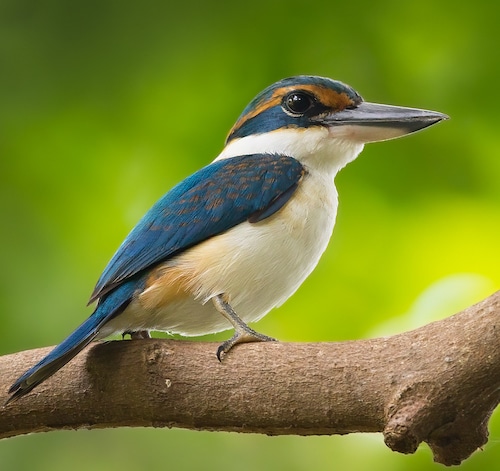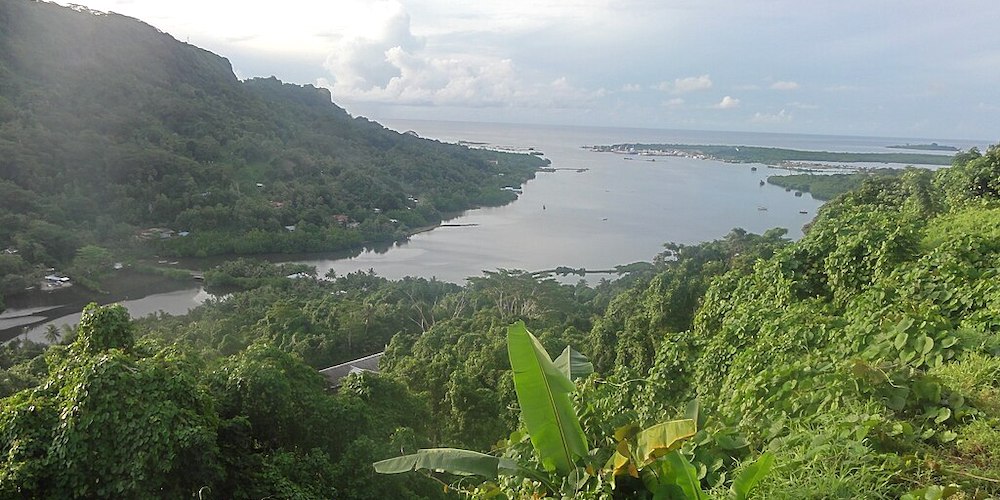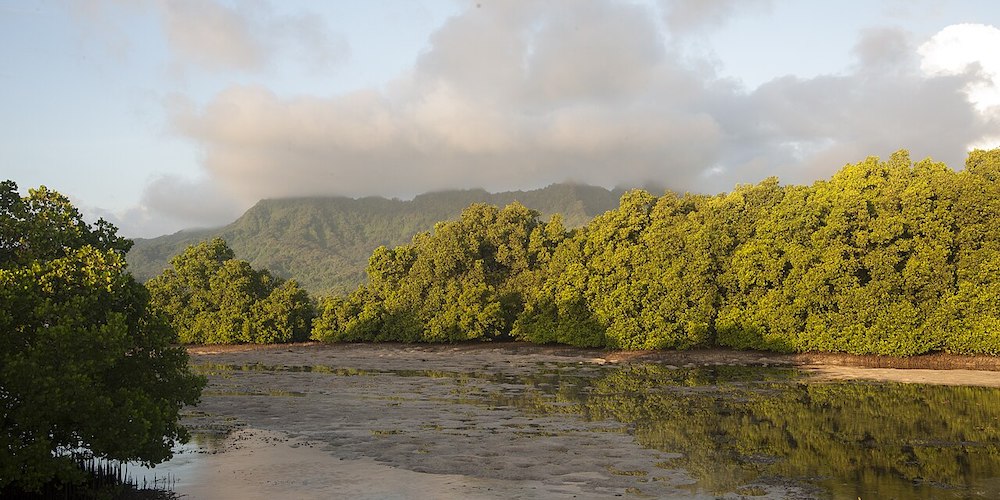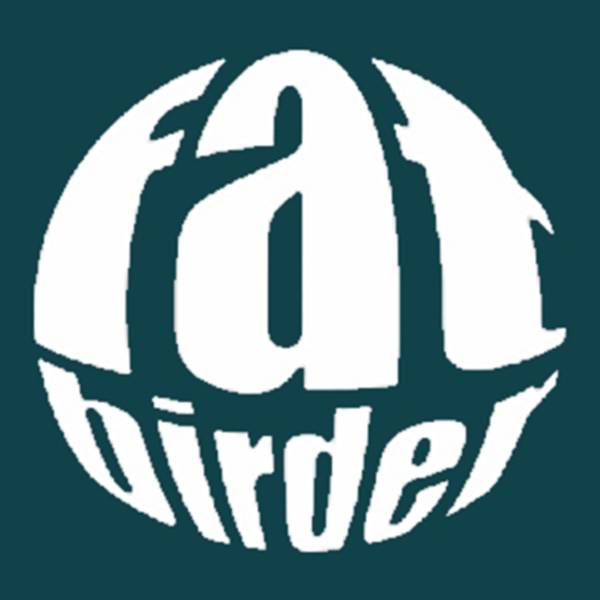Federated States of Micronesia

The Federated States of Micronesia ( also known simply as Micronesia, or abbreviated to FSM) is an independent sovereign island nation and a United States associated state consisting of four states; from west to east, Yap, Chuuk, Pohnpei and Kosrae that are spread c. 2,700 km (c.1700 miles) across the Western Pacific Ocean. Together, the states comprise around 607 islands (with a combined land area of approximately 702 km2 (271 square miles) just north of the equator. They lie northeast of New Guinea, south of Guam and the Marianas, west of Nauru and the Marshall Islands, east of Palau and the Philippines, about 2,900 km (1,800 miles) north of eastern Australia and nearly 3,400 km (2,500 miles) southwest of the main islands of Hawaii.
The capital is Palikir, located on Pohnpei Island, while the largest city is Weno, located in the Chuuk Atoll. Each of its four states is centred on one or more main high islands, and all but Kosrae include numerous outlying atolls. There are around 105,000 inhabitants. The Federated States of Micronesia is spread across part of the Caroline Islands in the wider region of Micronesia, which consists of thousands of small islands divided among several countries. The term Micronesia may refer to the Federated States or to the region as a whole.
The country’s total land area is relatively small; but FSM’s waters occupy nearly 3 million km2 (1.2 million sq mi) of the Pacific Ocean, giving the country the 14th-largest exclusive economic zone in the world.

©Erin Magee/DFAT, CC BY 2.0 via Wikimedia Commons
FSM has a tropical rainforest climate. The weather is warm, humid and rainy all year round. The islands are located north of the equator within the tropics and are affected by constant trade winds, which temper the climate. Minimum temperatures range all year round between 22 and 25 °C, and maximum temperatures between 30 and 32 °C. The abundant precipitations oscillate between 2500 and 5000 mm per year, although in areas oriented to the wind they can surpass 6000 mm. Mount Nahnalaud, only 750 m high, on the island of Pohnpei, receives an average of 10,160 mm, being one of the rainiest places on earth, with almost always overcast skies. In general, the rains are produced by showers and storms of short duration but very intense. The driest places are the flat atolls, where rainfall can drop below 3000 mm. The driest months are January and February, with no less than 250 mm and 20 days of rain.
Birding Micronesia
Two terrestrial eco-regions lie within the country’s borders: Carolines tropical moist forests and Yap tropical dry forests.
The major coastal communities are mangrove forests, seagrass beds, lagoons and coral reefs, biologically and physically linked. About 300 species of coral, 1000 species of fish and 1200 species of mollusks are recognised in Micronesia. In the mangrove forests there are shrimps, crabs and fish, as well as birds that feed on them. Seagrass meadows appear offshore following the mangroves. The lagoons provide food for the reef inhabitants and contain various kinds of plankton. The biodiversity and complexity of the coral reefs increases markedly from east to west, with 150 species of hard coral at Kosrae, 200 at Pohnpei and 300 at Chuuk.

Kosrae moist forest – ©Geoffrey Rhodes, Australia, CC BY 2.0 via Wikimedia Commons
land, from the tidal zone to the top of the mountains there is a varied range of vegetation, cloud forest, upland, palm, plantation, areas dominated by climbers of the genus Merremia, savannas, native secondary forest, fragments of introduced trees, cultivated areas, freshwater swamps, swamps of the palm Nypa fruticans, atoll forests, forests in rocky areas and beaches. There are about 1230 species of ferns and flowering plants, of which 782 are native, including 145 native fern species. On Pohnpei Island, there are about 750 plant species, of which 110 are endemic. Another 457 species have been introduced.
So, FSM has an amazingly diverse range of natural ecosystems, from the world’s lowest elevation cloud forests, tropical rain forests, agro-forests, freshwater ‘Redwood’ wetlands, giant taro swamps, large and varied mangrove tracts, to some of the world’s most pristine coral reefs, sea-grass meadows and estuaries and lagoons.
The islands are also blessed with many indigenous bird species: Nightingale Reed-warbler, Truk Monarch, Blue-faced Parrot Finch, Pohnpei Lori and Kosrae Greater White-eye, to name just a few. In all there are 21 endemic species of birds as well as those endemic to wider Micronesia. The island of Chuuk in particular has become a focus for world birders.
-
Wikipedia
GNU Free Documentation License
https://en.wikipedia.org/wiki/Micronesia
-
Number of bird species: 241
(As at January 2025)
Number of endemics: 21
Caroline Ground-dove Alopecoenas kubaryi
Pohnpei Fruit-dove Ptilinopus ponapensis
Kosrae Fruit-dove Ptilinopus hernsheimi
Caroline Swiftlet Aerodramus inquietus
Pohnpei Kingfisher Todiramphus reichenbachii
Pohnpei Lorikeet Trichoglossus rubiginosus
Yap Cicadabird Edolisoma nesiotis
Pohnpei Cicadabird Edolisoma insperatum
Pohnpei Fantail Rhipidura kubaryi
Chuuk Flycatcher Myiagra oceanica
Pohnpei Flycatcher Myiagra pluto
Yap Monarch Metabolus godeffroyi
Chuuk Monarch Metabolus rugensis
Caroline Reed-warbler Acrocephalus syrinx
Teardrop White-eye Rukia ruki
Long-billed White-eye Rukia longirostra
Yap Plain White-eye Zosterops hypolais
Pohnpei White-eye Zosterops ponapensis
Kosrae White-eye Zosterops cinereus
Yap Olive White-eye Zosterops oleagineus
Pohnpei Starling Aplonis pelzelni
-
Avibse
PDF ChecklistThis checklist includes all bird species found in Federated States of Micronesia , based on the best information available at this time. It is based on a wide variety of sources that I collated over many years. I am pleased to offer these checklists as a service to birdwatchers. If you find any error, please do not hesitate to report them. -
Wikipedia
Annotated ListThis is a list of the bird species recorded in Micronesia. The avifauna of the Federated States of Micronesia include a total of 240 species, of which 22 are endemic, and 13 have been introduced. Of those species, 24 are globally threatened. -
eBird
PDF ChecklistThis checklist is generated with data from eBird (ebird.org), a global database of bird sightings from birders like you. If you enjoy this checklist, please consider contributing your sightings to eBird. It is 100% free to take part, and your observations will help support birders, researchers, and conservationists worldwide.
-
Birds of the Federated States of Micronesia
| By Wolfgang Daunicht | AVITOPIA | 2022 | Paperback | 93 Pages | ISBN: 9798417148026 Buy this book from NHBS.com -
Checklist of the Birds of Micronesia
| By P Pyle & J Engbring | Hawaii Audubon Society | 1985 | Unbound | 12 pages, no illustrations | ISBN: Buy this book from NHBS.com
-
Yap Islands - Endemic Bird Area
WebpageSatellite ViewThe state of Yap in the western Pacific comprises four main volcanic and metamorphic islands separated by narrow channels: Yap (which has the highest peak at 176 m), Gagil Tomil, Maap and Rumung.
-
BirdQuest
Tour OperatorMICRONESIA – The Forgotten Islands of the Pacific
-
2016 [04 April] - Pete Morris - Micronesia
PDF Report...After a fairly short night’s sleep, we took it easy on our frst day on Yap, essentially taking the frstmorning off. After lunch, we explored an area of semi-natural forest, where we began to pick up ourfrst endemics. Plain White-eyes were particularly common, our frst Yap Monarchs showed well andthe local form of Rufous Fantail obliged. The frst glimpses of ground doves were less than satisfactorythough.... -
2017 [04 April] - Bob French
PDF Report...We found Kosrae White-eye along the boardwalk through the mangroves to Bully's Restaurant. White Terms entertained us during breakfast. A while later we ran into a part-time guide for the lodge named Carlos who was familiar with the birds of Kosrae (in fact, he provided the documentation for several first Kosrae records in Pratt's survey of the birds of the island.) Carlos said the Kosrae Fruit-dove was common on the road to his house... -
2019 [04 2019] - János Oláh
PDF ReportThis was our fifth tour to explore some of the more remote areas of the Western Pacific. We were pioneers with our first tour back in 2008 and even nowadays very few birders visit Micronesia on such a thorough basis as we do! Virtually no other birding companies offer such a comprehensive tour to this remote corner of the World, especially now as we supplemented the main tour with a short extension to Kosrae – following the splitting of Kosrae Frui-dove and Kosrae White-eye. -
2023 [04 April] - Doug Whitman
PDF ReportRare birds, coral reefs, ancient ruins, and boats: independent birding in Micronesia -
2024 [04 April] - Doug Whitman
PDF ReportRock Islands and Stone Money–the other half of Micronesia -
2024 [04 April] - Pete Morris
Report...Pohnpei Lorikeet, the stunning Golden White-eye, and an excellent selection of kingfishers and fruit doves to name just a few...
-
Birding Pohnpei
WebsiteWith seven species of birds found nowhere else on earth and another nine unique to the Micronesian region, Pohnpei has developed a special place in the hearts of international birders. On this page, we’ve included information about all the target species and where you might find them, as well as providing suggestions about where to book tours, hire guides, or get additional assistance. Precise topographic hiking maps and information about “hotspot” birding locations on Pohnpei can (or will) be found in all of the eco-adventure map guides.

